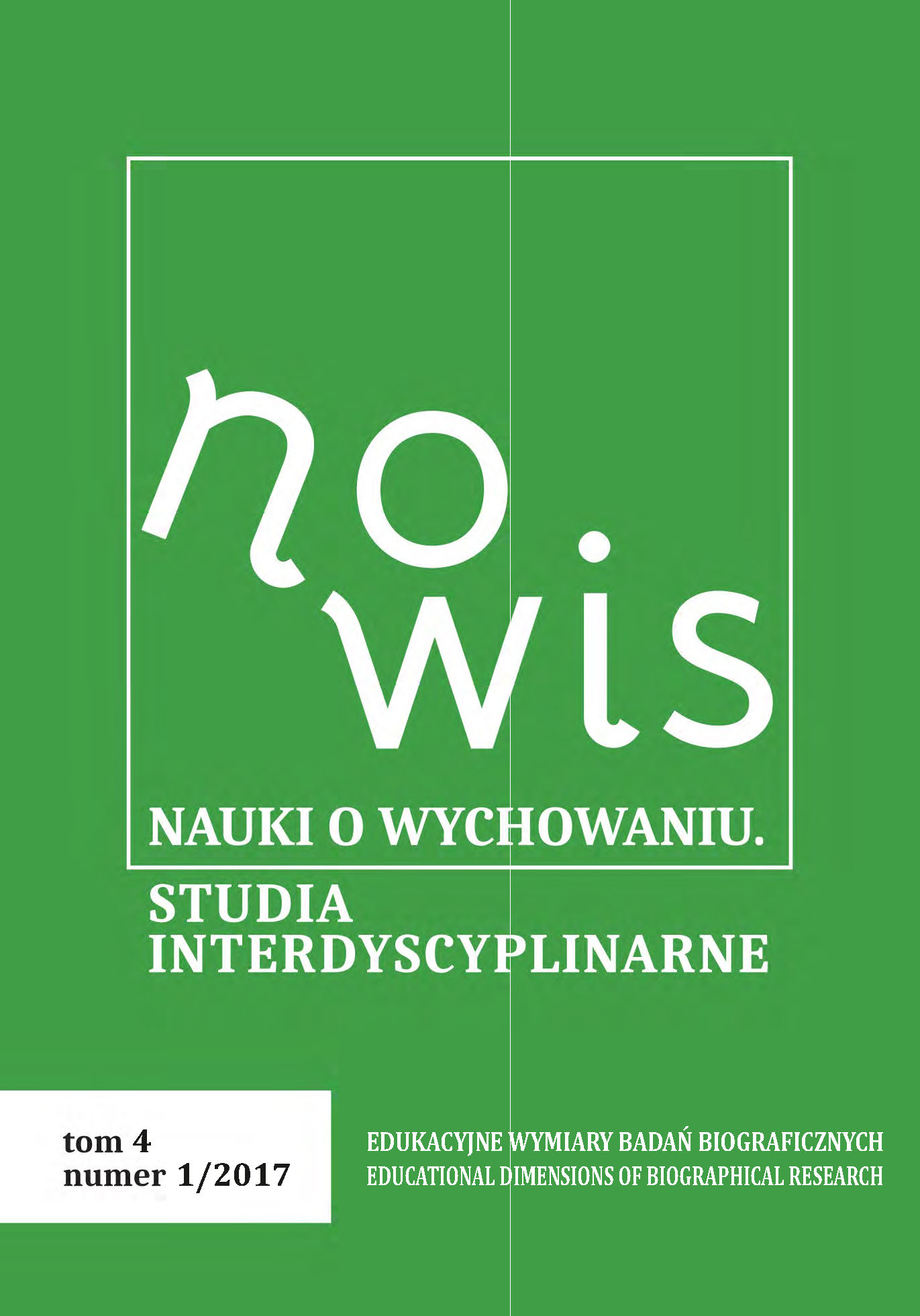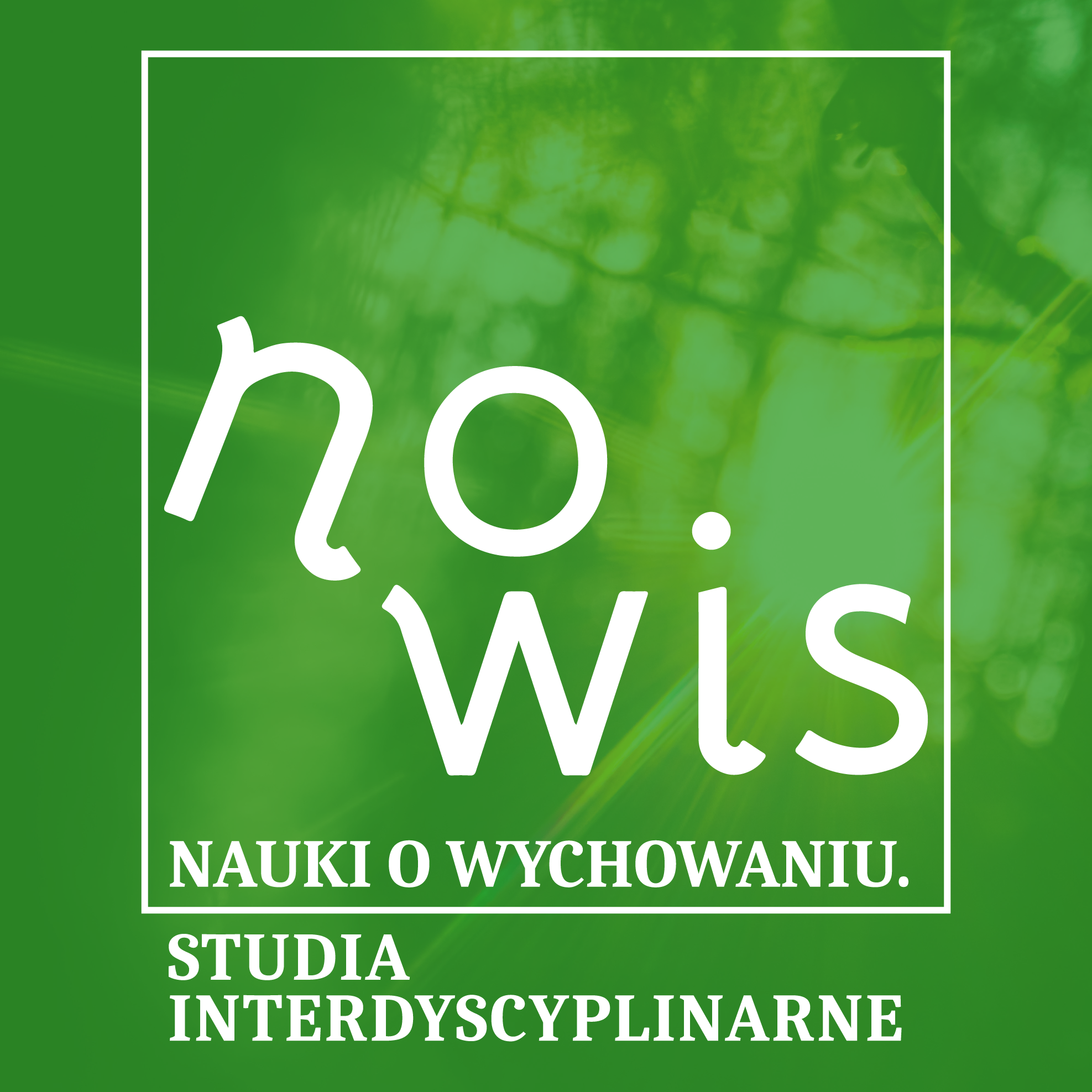O badaniach biograficznych krytycznie
DOI :
https://doi.org/10.18778/2450-4491.04.02Mots-clés :
metoda biograficzna, abdukcja, analiza, typologia studentówRésumé
W naukach społecznych i humanistycznych widzimy różnorodność podejść do badań biograficznych. Powstaje więc pytanie, które z tych podejść są właściwe, a które nie? Które warto stosować i dlaczego? Artykuł ten podejmuje zagadnienie badań biograficznych z punktu widzenia krytycznego, szczególnie w czasie, kiedy różnorodność podejść, koncepcji i perspektyw może sprawiać trudności nowicjuszom w stosowaniu tej metody.
Wieloletnie posługiwanie się metodą biograficzną pozwala mi spojrzeć na własną działalność badawczą krytycznie i zastanawiać się, jak stosowanie metody abdukcyjnej do generowania teorii dotyczącej konstruowania i rekonstruowania tożsamości nietradycyjnych studentów w szkolnictwie wyższym w Szwecji jest możliwe i jakie są tego konsekwencje.
Artykuł ten stara się pokazać początki metody biograficznej, usytuować ją w kontekście nauk społecznych, zastanowić się nad różnymi podejściami, pułapkami oraz zaletami i wadami tej metody. Równocześnie przedstawia problemy w stosowaniu metody wywiadu biograficznego, doboru próby, zagadnień etycznych oraz analizy danych, jak i konceptualizacji danych oraz tworzenia typologii na przykładzie własnych badań.
Références
Alexander J., Thompson K. (2008) A Contemporary Introduction to Sociology: Culture and Society in Transition, Boulder, Colorado, Paradigm Publishers.
View in Google Scholar
Alheit P. (1995) Biographical learning. Theoretical outline, challenges and contradictions of a new approach in adult education w: The Biographical approach in European adult education, P. Alheit et al. (ed.), Wien, Verband Wiener Volksbildung/ESREA, s. 57–74.
View in Google Scholar
Belenky M. F., Clinchy B. M., Goldberger N. R., Tarule J. M. (1986) Women’s Ways of Knowing, New York, Basic Books.
View in Google Scholar
Bertaux D. (ed.) (1981) Biography and Society, Beverly Hills, University of California.
View in Google Scholar
Blumer H. (1954) What is Wrong with Social Theory?, “American Sociological Review”, no 19, s. 3–10.
View in Google Scholar
Bourdieu P. (1990) The Logic of Practice, Cambridge, Polity Press.
View in Google Scholar
Bron A. (1999) The Price of Immigration. Life Stories of Two Poles in Sweden, “International Journal of Contemporary Sociology”, no 36/2, s. 191–203.
View in Google Scholar
Bron A. (2000) Floating as an analytical category in the narratives of Polish immigrants to Sweden w: Allvarlig debatt and rolig lek, En festskrift tillägnad Andrzej Nils Uggla, Uppsala. Uppsala, Universitet, Centrum för multietnisk forskning, s. 119–132.
View in Google Scholar
Bron A. (2007) Learning, Language and Transition w: Using biographical and life history approaches in the study of adult and lifelong learning: perspectives from across Europe, L. West et al. (eds.), Frankfurt, Peter Lang, s. 205–220.
View in Google Scholar
Bron A. (2009) Biograficzność w badaniach biograficznych, „Dyskursy Młodych Andragogów”, nr 10, Zielona Góra, Uniwersytet Zielonogórski, s. 37–54.
View in Google Scholar
Bron A., Edström E., Thunborg C. (2010) Struggles in Student Identity – A Space for Poetry, ESREA Life History and Biography Network Conference, Växjö University College.
View in Google Scholar
Bron A., Edström E., Thunborg C. (2012) ‘To Make a Difference for the Others and Myself’: Second Generation Immigrants Students’ Learning Narratives in Sweden, ESREA Migration, Racism, and Xenophobia Research Network Conference, Karl-Franzens Universität Graz.
View in Google Scholar
Bron A., Schemmann M., (eds.) (2002) Social Science Theories and Adult Education Research, BSIEA, vol. 3, Münster, Lit Verlag.
View in Google Scholar
Bron A., Thunborg C. (2015) Biographical interviewing. The case of non-traditional students in higher education. SAGE Research Methods Cases, http://srmo.sagepub.com/page/help-1/help
View in Google Scholar
Bron A., Thunborg C. (2016) O teoretyzowaniu danych biograficznych. Przypadek studentów nietradycyjnych, „Teraźniejszość – Człowiek – Edukacja. Kwartalnik myśli społeczno-pedagogicznej”, nr 3 (75), vol. 19, s. 139–153.
View in Google Scholar
Bron A., Thunborg C., Edström E. (2013) Theorizing Learning Lives of Non-Traditional Students. Paper presented at the ESREA Life history and Biographical Research Network, Canterbury 28 February – 3 March 2013.
View in Google Scholar
Bron A., Thunborg C., Edström E. (2014) Ethnicity and Class, Does it Matter? w: Student voices on inequalities in European Higher Education, F. Finnegan, B. Merrill, C. Thunborg (eds.), London, Routledge, s. 63–73.
View in Google Scholar
Bron-Wojciechowska A. (1989) Workers and Post-Secondary Education. A Cross Polity Perspective, Uppsala, Uppsala Studies in Education 31, Acta Universitatis Upsaliensis.
View in Google Scholar
Bruner J. (1990) Acts of Meaning, Harvard, Harvard University Press.
View in Google Scholar
Chamberlayne P., Borna J., Wengraf T. (eds.) (2000) The Turn to Biographical Methods in Social Science Comparative issues and examples, New York, Routledge.
View in Google Scholar
Denzin N. (1989) The Research Act: A Theoretical Introduction to Sociological Methods, New Brunswick, Transaction.
View in Google Scholar
Dulczewski Z. (1984) Florian Znaniecki życie i dzieło, Poznań, Wydawnictwo Poznańskie.
View in Google Scholar
Durkheima É. (1895) Les règles de la méthode sociologiqu. The Rules of Sociological Method, Paris, Librairie Félix Alcan.
View in Google Scholar
Giddens A. (1991) Modernity and Self-Identity, Self and Society in the Late Modern Age, Cambridge, Polity Press.
View in Google Scholar
Glaser B. (1992) Basics of Grounded Theory Analysis, Mill Valley, Sociology Press.
View in Google Scholar
Glaser B. (2002) Conceptualisation. On Theory and Theorising Using Grounded Theory w: Social Science Theories and Adult Education Research, A. Bron, M. Schemmann (eds.), BSIEA, vol. 3, Münster, Lit Verlag, s. 313–335.
View in Google Scholar
Glaser B., Strauss A. (1967) The discovery of grounded theory, Chicago, Aldine.
View in Google Scholar
Mead G. H. (1934) Mind, Self and Society. A Standpoint from a Social Behaviorist, Chicago, University of Chicago Press.
View in Google Scholar
Peirce Charles S. (1974, 1979) Collected Papers, Published by Charles Hartshorne, Paul Weiss and Arthur Burks. Cambridge (Mass.), The Belknap Press of Harvard University Press.
View in Google Scholar
Ricoeur P. (2000) La Mémoire, l’Histoire, l’Oubli, Paris, Èditions du Seuil.
View in Google Scholar
Riemann G., Schütze F. (1992). ‘Trajectory’ as a main theoretical concept in analysis of social processes of suffering and disorder, „Kultura i Społeczeństwo”, no 2.
View in Google Scholar
Schütze F. (1987) Das narrative Interview in Interaktionsfeldstudien w: Studiebrief der Fernuniversität, Hagen, FB Erzichungs- und Sozialwissenschaften.
View in Google Scholar
Shaw C. (1930) The Jack-Roller. A Delinquent Boy’s Own Story, Chicago, The University of Chicago Press.
View in Google Scholar
Strauss A. (1987) Qualitative Analysis for Social Scientists, Cambridge, Cambridge University Press.
View in Google Scholar
Szacki J. (1986) Znaniecki, Warszawa, Wiedza Powszechna.
View in Google Scholar
Szewczuk W. (1959) Psychologia człowieka dorosłego. Wybrane zagadnienia, Warszawa, Wiedza Powszechna.
View in Google Scholar
Tavory I., Timmermans S. (2014) Abductive analysis. Theorizing Qualitative Research, Chicago, The University of Chicago Press.
View in Google Scholar
Thomas I. W., Znaniecki F. (1918–1921) The Polish Peasant in Europe and America, Boston, Mass., Badger.
View in Google Scholar
Thomas I. W., Znaniecki F. (1976) Chłop polski w Europie i w Ameryce, t. 1–5, Warszawa, Ludowa Spółdzielnia Wydawnicza.
View in Google Scholar
Thunborg C., Bron A., Edström E. (2011) Forming and transforming learning identities in higher education w: Raamat Öppimisest (The book of learning), L. Jögi, K. Krabi (eds.), Tallinn, Tallinn Ûlikooli Kasvatusteaduste Instituut.
View in Google Scholar
Thunborg C., Bron A., Edström E. (2012) Forming learning identities in higher education in Sweden, “Studies for the Learning Society”, no 2–3, s. 23–34.
View in Google Scholar
Thunborg C., Bron A., Edström E. (2013) Motives, commitment and student identity in higher education – Experiences of non-traditional students in Sweden, “Studies in Education of Adults”, no 45 (2), s. 177–193.
View in Google Scholar
Włodarek J., Ziółkowski M. (1990) (red.) Metoda biograficzna w socjologii, Poznań, PWN.
View in Google Scholar





 Le site web de la revue, hébergé par l'équipe éditoriale de NOWIS se trouve sur la plate-forme Index Copernicus:
Le site web de la revue, hébergé par l'équipe éditoriale de NOWIS se trouve sur la plate-forme Index Copernicus: 





